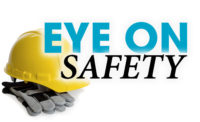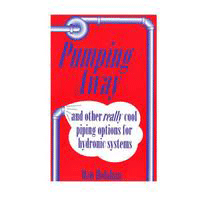Can you be sued for OSHA violations?
Push to allow employees to sue employers for OSHA violations.

As the country shifts to a liberal presidency and Congress, the Center for Progressive Reform (CPR), a nonprofit think tank, is calling upon state and federal lawmakers to create a private right of action that would allow employees to sue their employer for OSHA violations. Funded by a Harvard Law School grant, four law professors and a policy analyst — none of whom list business experience or employer advocacy in their work history — recently authored a white paper and hosted a webinar to motivate legislators, attorneys and activists.
Currently, an employee must report health and safety concerns to OSHA. They cannot sue the employer in court for OSHA Act violations. The employee will likely be interviewed by an OSHA Certified Safety and Health Official, but subsequent inspections, citations and settlements are managed by OSHA and fines are paid to the U.S. Treasury. If an employer retaliates against an employee for filing the complaint or participating in the investigation, the employee may notify OSHA’s Whistleblower Protection Program, the findings of which are subject to judicial review. An employee who is unlawfully retaliated against may receive, among other remedies, compensatory damages and their costs and expenses, including attorney’s fees.
CPR asserts the current method “disempowers” and “silences” employees. It claims employees need the right to sue employers because OSHA is slow, underfunded, inherently biased toward employers, not culturally competent, politically pressured, insufficiently protective of whistleblowers and disinterested in enforcing the law. The threat of a lawsuit, a public settlement and media attention, CPR notes, will pressure employers “to secure a safe and healthy workplace where OSHA has chosen not to inspect or issue a citation.” The group cites the California Private Attorney General’s Act, the federal Clean Air Act and Clean Water Act as model frameworks for the OSH Act private right of action.
An employee’s right to file the lawsuit, CPR suggests, would be triggered if OSHA does not inspect a workplace within five days of receiving the employee’s complaint, or if OSHA does not issue a citation within 30 days. CPR frequently cited speed as a reason to abandon the current OSHA complaint process, but traditional litigation is sluggish. In 2009, 42.8% of employment cases took more than one year to reach disposition in federal court. Arbitration tends to be more efficient but, notably, CPR advocates that Congress ban mandatory arbitration clauses in employment contracts because it, too, “disempowers” and “silences” workers. Presumably, the private nature of arbitration is problematic because, as the webinar panelists vocalized, arbitration cannot rally public pressure upon the employer.
Perhaps no topic in recent history has garnered more public interest than the COVID-19 pandemic. CPR’s authors and panelists heavily referenced COVID-19 to justify a private right of action, stating, “the coronavirus pandemic and workers’ unmitigated exposure to the deadly disease that causes COVID-19 is a prime example of the agency’s failure to protect workers in the modern era.”
But a COVID-related OSH Act lawsuit may be limited in a state that enacted a COVID immunity statute. For instance, Wisconsin Statute 895.476 bars a suit against an employer “for the death of or injury to any individual or damages caused by an act or omission resulting in or relating to exposure, directly or indirectly, to [COVID-19] in the course of or through the performance or provision of the [employer’s] functions or services.” Notably, a lawsuit may be brought if the employer exhibited “involves reckless or wanton conduct or intentional misconduct.” What constitutes reckless, wanton or intentional misconduct has yet to be articulated by the courts. Would an employer’s violation of a local health department order qualify? The failure to follow local health department or CDC guidance? Maybe.
Further, workers compensation statutes may complicate or restrict lawsuits if the alleged OSHA violation injures the employee. Every state work comp statute prevents the employee from suing the employer for monetary damages after a work-related injury. However, at least in Wisconsin, if the courts determine the work comp statute and the OSH Act serve different purposes and deliver different remedies, an injured employee may be able to file an OSH Act lawsuit, but could be limited to equitable relief and not recover a money judgment. Notably, removing the possibility of a cash award will probably reduce the number of employee plaintiffs.
Speaking of money, U.S. litigation is notoriously expensive, especially when it involves expert testimony which OSH Act litigation most certainly will. The money employers pay to defend OSH Act lawsuits, or the cost of increased premiums if the claims are covered by an Employment Practices Liability or other insurance policy will deplete the funds an employer could otherwise put toward improved safety programs. Time is money, too. When a company is sued, safety managers will be pulled away from their regular duties to support litigation efforts, and safety programs and morale will suffer. Diverting safety resources to expensive and time-consuming litigation exposes employees to increased risk and jeopardizes workplace harmony.
So how likely is it that CPR’s effort will succeed? The group acknowledged that, unless the Democrats eliminate the filibuster, enacting a federal private right of action for the OSH Act will be a challenge. So, they encourage activists to push the issue with state legislators in “friendly” state-plan states such as Oregon, Washington, California, and Maryland. Employers in all states, but especially in these state-plan states, should keep an eye on the OSHA private right of action initiative and advocate for themselves.
OSHA did not respond to requests for comment.
Looking for a reprint of this article?
From high-res PDFs to custom plaques, order your copy today!







